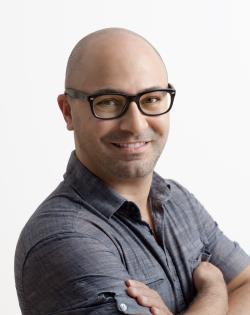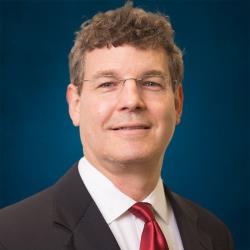WSIS Action Line C2: Challenges and solutions for broadband infrastructure deployment in developing countries, rural and remote areas
ITU-D FNS (Future Networks and Spectrum Management Division) and ITU-T Study Group 15 (Networks, technologies and infrastructures for transport, access and home)
Session 156
Joint Workshop of ITU-D FNS (Future Networks and Spectrum Management Division) and ITU-T Study Group 15 (Networks, technologies and infrastructures for transport, access and home)
Driven by the continually progresses of the broadband technologies and the overall recognition that national broadband infrastructures are essential for a sustainable social and economic development of each country, the worldwide number of internet users steadily grew at an average rate of 9.8 per cent yearly over nearly the last 20 years. Approximately two-thirds of the world's population, or 5.4 billion people had access to the Internet at the end of 2023 and one third, or 2.6 billion people was still off-line.
Broadband connectivity is progressing everywhere, but at different paces depending on the levels of development of the countries and the urban and rural areas across the countries. In 2023, 93 per cent of the people in high-income countries used the Internet compared with only 27 per cent in low-income countries. Worldwide, 81 per cent of urban dwellers used the Internet in 2023, compared with only 50 per cent of the population in rural areas and this gap between urban and rural areas varies significantly across income groups: only 17 per cent of the people living in rural areas of low-income countries used the Internet.
To meet the ITU Strategic Goal of Universal Connectivity by 2030 and connect the remaining 2.6 billion people still living without the Internet is truly challenging. Innovative broadband solutions and alternative business models are required to address the digital disparities between high-income and low-income countries as well as between urban and rural areas.
There have been tremendous progresses in the development of information and communication technologies over the past two decades, especially to facilitate, accelerate and reduce costs of deployment of fixed and mobile broadband networks infrastructures, including those to deliver Internet connections to populations in developing countries, rural and remote areas.
In this workshop, experts from ITU-D FNS (Future Networks and Spectrum Management Division) and ITU-T Study Group 15 (Standardization Group for networks, technologies and infrastructures for transport, access and home) will present an update on the wireless and fibre access technologies, network topologies as well as innovative solutions to reduce time and cost of deployment with a special focus on the challenges and infrastructure solutions to connect the unconnected in developing countries, rural and remote areas.

Dr. Walid Mathlouthi received a PhD in Optics, Photonics and Lasers. He spent his early career at Optical Research Laboratories in France, Italy, Canada and the US with Intel Corp where he worked, among other things, on the first Raman silicon laser. In 2010, he joined AT&T Labs in California as a Senior Member of Technical Staff.
In 2014, Dr. Walid joined Google Headquarters in Mountain View managing Global Network Architecture. He worked on building high quality networks to provide broadband connectivity in emergent markets and connect the under-connected. He also led Google Global Data Centre design to support cloud services deployments (compute, storage, ML Pods and AI infrastructure).
Since 2022 he joined ITU as the head of the Future Networks and Spectrum Management Division leading various projects to leverage technologies such as satellite and AI to support economic growth in developing countries and help bridge the digital gap.

Vince Ferretti, Senior Standards Manager, Global Technical & Industry Standards, is responsible for the development, coordination and communication of Corning’s standards strategy across Corning’s optical fiber, cabling, connectivity and wireless systems and products.
Vince joined Corning in 1993 and has extensive experience in product management, engineering, sales, marketing, market development and strategy, while working in a diverse and global environment. His roles within Corning have spanned Corning’s Japan, OEM, carrier and enterprise market segments, the majority spent in FTTH, Wireless and LAN applications. He joined Corning’s Standards team in 2018.
Vince currently serves as Promotion and Coordination Vice-Chair and Associate Rapporteur of Q5 for ITU-T Study Group 15. He actively participates in the following ITU-T Questions (Q2, Q5, Q6, Q7, Q8). He manages Corning participation in IEEE 802.3 study groups/task forces (Optical Access and Ethernet Transport Systems).
Vince also represents Corning and the United States in IEC SC86A (Fiber and Cable), IEC SC46 JW8 (Hybrid Cables) and IEC TC 108 (Distributed power systems for communications devices). He is the liaison officer between IEEE 802.3 and IEC SC86A. Vince oversees Corning participation in the Optical Internetworking Forum (Optical transport and Co-packaged optics), ORAN Alliance (X-Haul for 5G), ATIS STEP (Fault Managed Power and Underwriters Laboratories Projects, Fault Managed Power Systems and Hybrid Cable Electrical Safety).
Prior to joining Corning, Vince was an US Naval officer and nuclear engineer serving in the US submarine force.

Coordinating the climate and environmental sustainability agenda of the International Telecommunication Union, Robin orchestrates private-public partnerships, galvanizing the digital tech community to drive intensified climate action. Previously, she led the organization’s internal environmental sustainability journey. Prior to joining ITU, Robin’s role as a project manager at a business network for corporate social responsibility, as well as her engagement with emerging social tech entrepreneurs, ignited her passion for innovative business models and multi-stakeholder collaboration to drive positive change. She holds a master's degree in international business with a focus on corporate social responsibility from the University of St Andrews.
-
 C2. Information and communication infrastructure
C2. Information and communication infrastructure
Information and communication infrastructures are required to connect the 2.6 billion people still unconnected.
In this workshop, experts from ITU-D FNS (Future Networks and Spectrum Management Division) and ITU-T Study Group 15 (Standardization Group for networks, technologies and infrastructures for transport, access and home) will present an update on the wireless and fibre access technologies, network topologies as well as innovative solutions to reduce time and cost of deployment with a special focus on the challenges and infrastructure solutions to connect the unconnected in developing countries, rural and remote areas.
-
 Goal 9: Build resilient infrastructure, promote sustainable industrialization and foster innovation
Goal 9: Build resilient infrastructure, promote sustainable industrialization and foster innovation
National broadband infrastructures are essential for a sustainable social and economic development of each country.
In this workshop, experts from ITU-D FNS (Future Networks and Spectrum Management Division) and ITU-T Study Group 15 (Standardization Group for networks, technologies and infrastructures for transport, access and home) will present an update on the wireless and fibre access technologies, network topologies as well as innovative solutions to reduce time and cost of deployment with a special focus on the challenges and infrastructure solutions to connect the unconnected in developing countries, rural and remote areas.